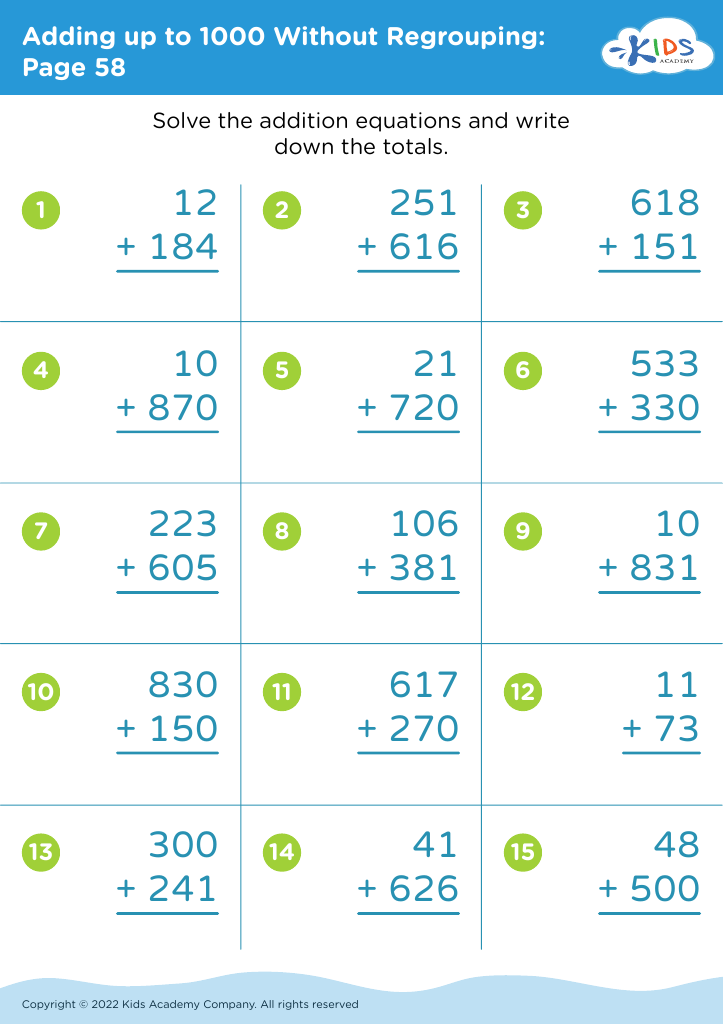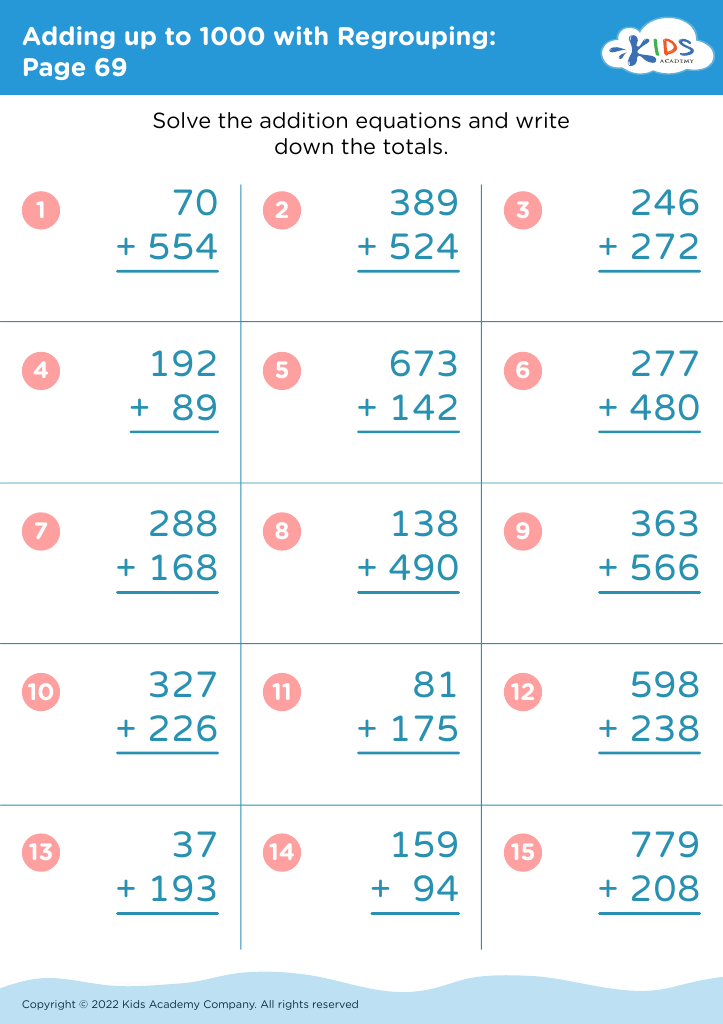Comparison Skills Math Worksheets for Ages 3-7
9 filtered results
-
From - To
Enhance your child's math journey with our "Comparison Skills Math Worksheets for Ages 3-7." These engaging worksheets from Kids Academy are designed to develop critical thinking and foundational math skills. Through fun activities, children learn to compare sizes, lengths, weights, and quantities. Perfect for preschoolers and early elementary students, these printable resources cultivate analytical reasoning and problem-solving abilities. Each worksheet is tailored to captivate young learners, making math both enjoyable and educational. Equip your child with essential comparison skills that will pave the way for future academic success. Unlock their potential with Kids Academy's expertly crafted materials today!
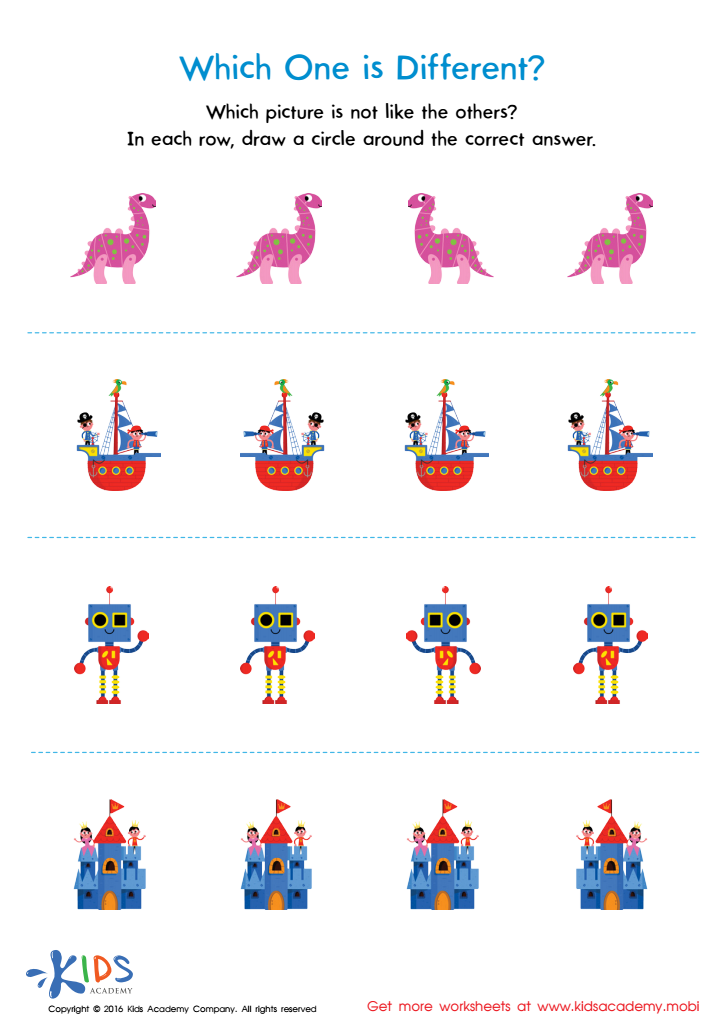

Which One Is Different Worksheet
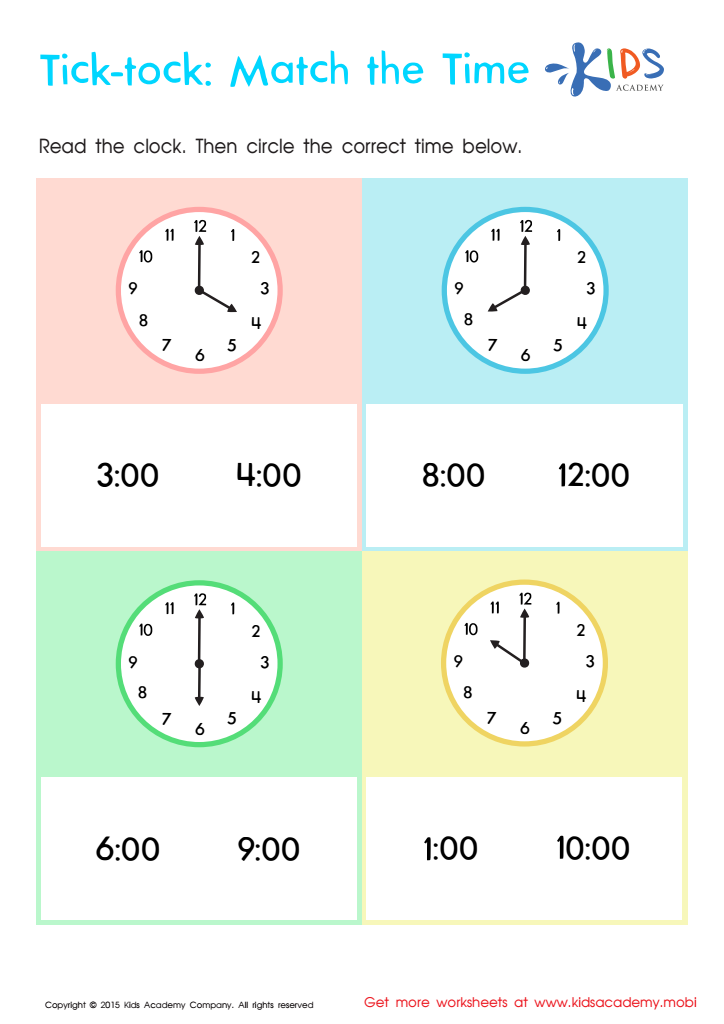

Telling The Time Worksheet: Part 4
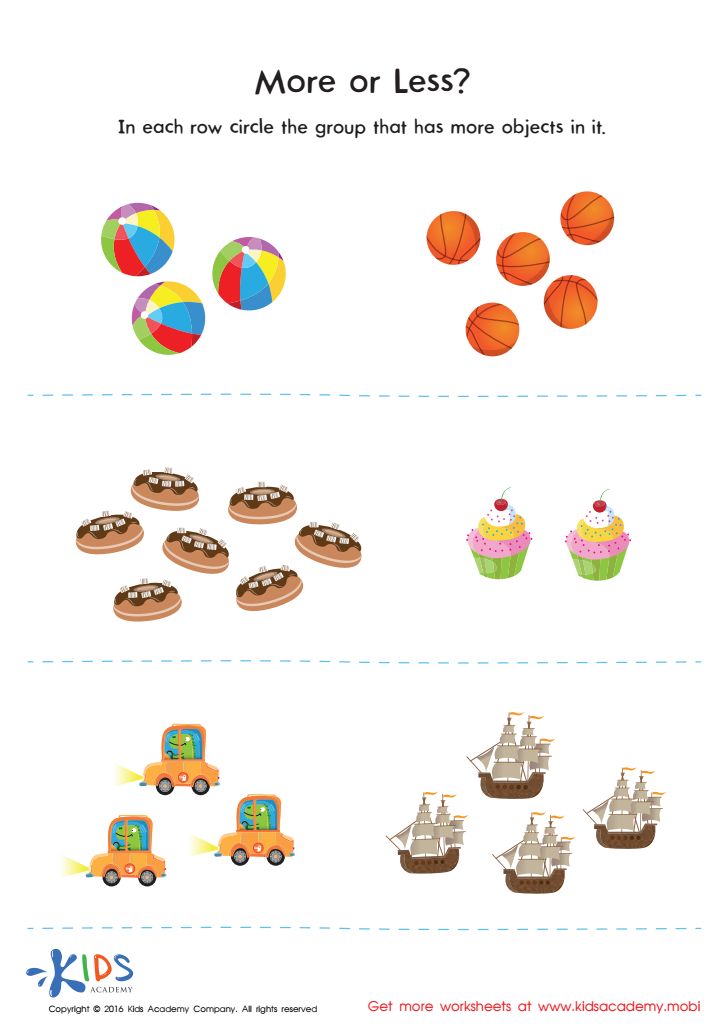

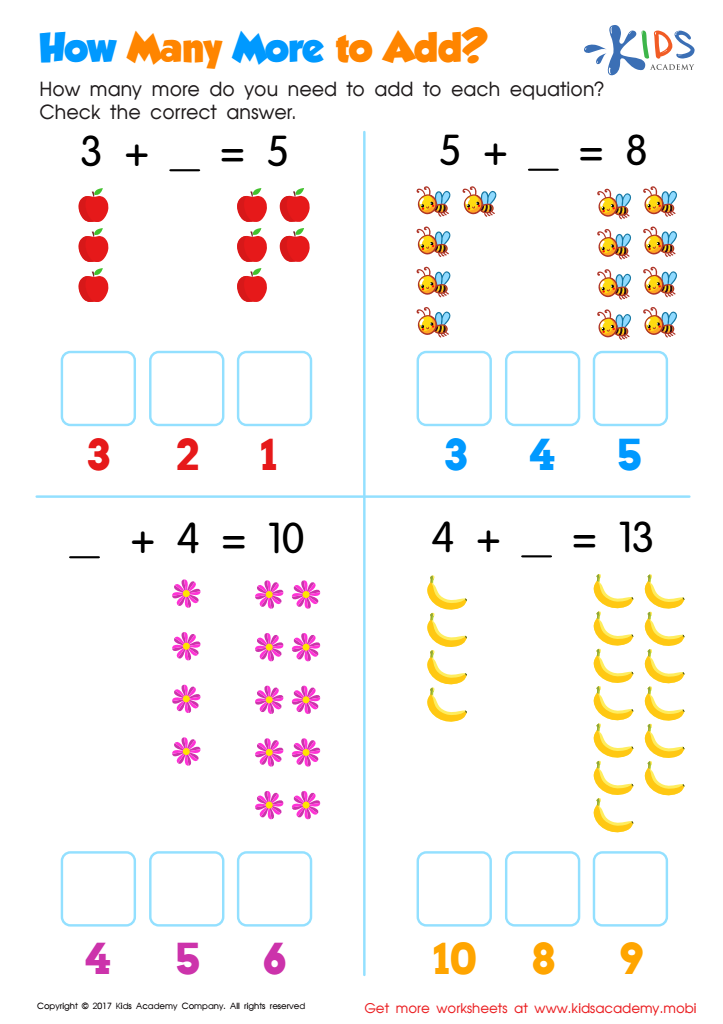

How Many More to Add Worksheet
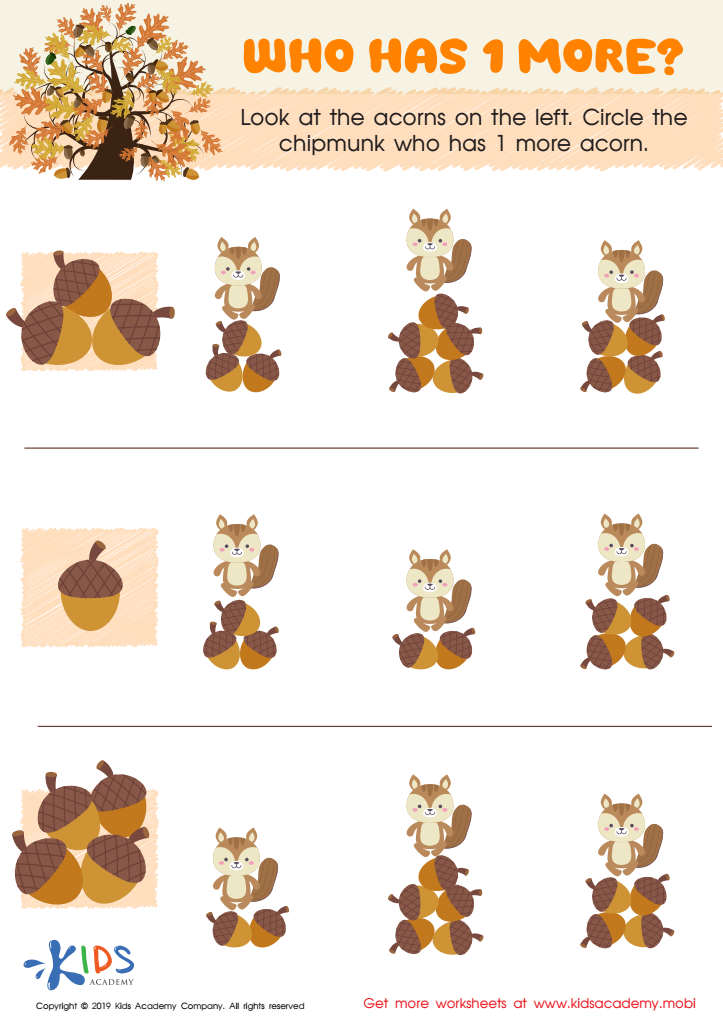

Who Has 1 More? Worksheet
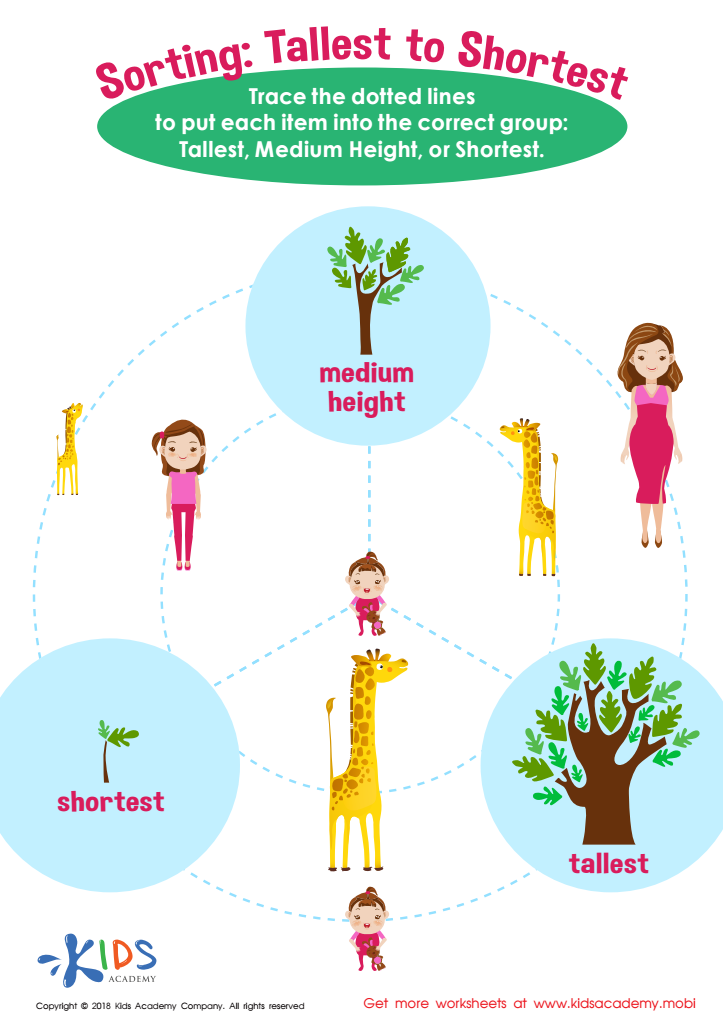

Sorting: Tallest to Shortest Worksheet
Comparison skills in math are foundational for children aged 3-7 and should be a priority for both parents and teachers. At this early developmental stage, children are beginning to make sense of the world around them, and comparison skills help build their understanding of important mathematical concepts.
Firstly, comparison skills introduce children to the ideas of greater than, less than, and equal to. These concepts are critical for more advanced math topics such as addition, subtraction, and number sense. When children can compare the size, quantity, and value of different items, they form a solid base for numerical operations and problem-solving skills.
Secondly, these skills enhance cognitive development. By differentiating between and categorizing objects, children improve their logical thinking and sequencing abilities. For instance, when a child sorts blocks by size or groups fruits by color and then counts them, they're developing critical reasoning skills that are transferable to other learning areas.
Thirdly, comparison skills are essential for daily life. Knowing how to compare quantities can help young children make sensible decisions, such as choosing the smaller portion of food if they're not hungry or determining who has more toys.
Finally, fostering these skills at an early age encourages future academic success and builds confidence. Children who feel competent in their ability to understand and manipulate numbers are more likely to engage positively with more complex mathematical tasks in later years. Thus, focusing on comparison skills creates a nurturing environment that promotes lifelong learning and curiosity.
 Assign to My Students
Assign to My Students

